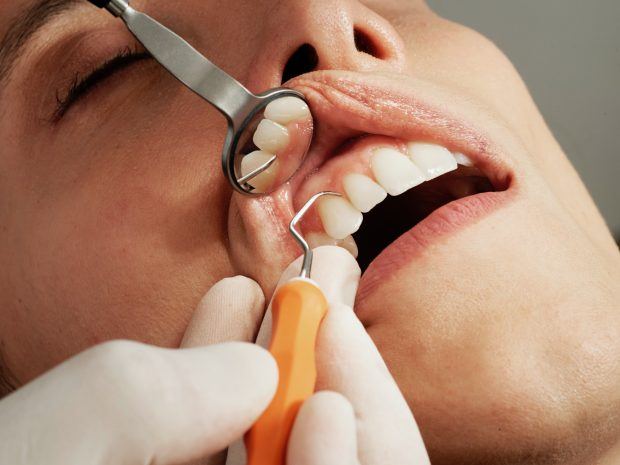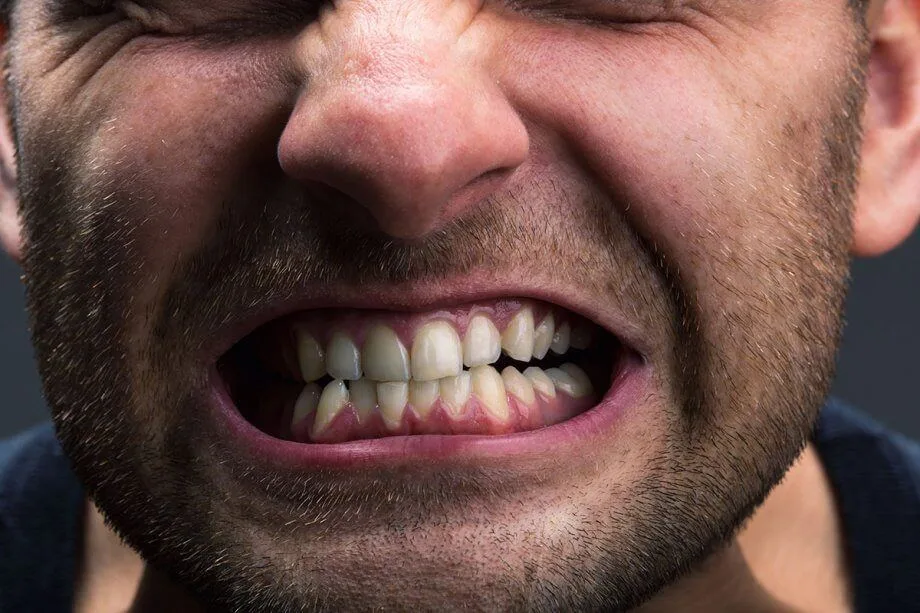Have you ever woken up to an unprovoked, constant headache accompanied by a sore jaw or sore teeth? It feels almost as if you got into a fight, you didn’t win the night before, but all you did was binge-watch your favorite Netflix series. You are not alone – those are symptoms of grinding and clenching your teeth.
Why do we grind our teeth?
The medical term for grinding your teeth is bruxism. It’s completely normal and harmless unless it becomes a consistent recurrence because it could then cause damage to your teeth and make room for other dental issues.
The reason why people grind their teeth, whether awake or asleep, is mainly attributed to stress and anxiety. Bruxism usually occurs when you are asleep, but it isn’t rare for bruxism to occur when you are awake. Sleep bruxism is a type of sleeping disorder.

Photo by JESHOOTS.COM on Unsplash
The contributing factors of primary bruxism
- Stress. This is one of the main causes of bruxism in adults.
- Smoking, caffeine, and alcohol. Studies show that the use of substances causes bruxism.
- Growing teeth. Up to 40% of young children experience bruxism because of growing teeth.
The secondary causes of bruxism
- Mental health conditions. Usually, anxiety and depression are associated with bruxism.
- Medication. Bruxism is a side effect of some medications like antidepressants and antipsychotics.
- Sleep apnoea. This is a condition that causes breathing to stop temporarily during sleep.
- Neurological conditions. Diseases, such as Huntington’s disease and Parkinson’s disease, cause movement during sleep and, as a result, it can cause bruxism.
Sleep vs Awake Bruxism
Bestmed Medical Scheme helps breaks down the difference between sleep and awake bruxism symptoms as well as treatment.
Sleep bruxism symptoms include:
- Pain in the face, neck, and jaw
- Stiffness in the jaw
- Clicking or popping sounds when you move your jaw
- Worn, broken, sensitive, or loose teeth or fillings
Awake bruxism
Awake bruxism differs from sleep bruxism, as awake bruxism isn’t a sleeping disorder, but rather a subconscious habit.
Just like sleep bruxism, awake bruxism happens involuntarily. In most cases, this happens when a person is feeling stressed or is concentrating. With awake bruxism, instead of grinding your teeth, you clench your teeth and tense the muscle area around your jaw.
There is no single identifiable cause of bruxism, but there are many contributing factors.
Treatment
Dentists recommend a mouth guard, which is made of flexible rubber or plastic. It functions as a protective barrier that stops your teeth from getting damaged because of bruxism.

Photo by Caroline LM on Unsplash
An alternative that serves the same purpose is a mouth splint. It is made of harder plastic and helps to keep the jaw in a relaxed position.
How can I manage my stress?
You can’t avoid stress. One way or another it will find you as it is a normal part of life. So many factors in our day to day can induce stress: family, work, finances, and health, as well as a pandemic.
So, if we want to live better and longer, we need to find ways to cope with it. Here is how you can remove stress symptoms from your body and mind to live a healthier life.





![women [longevity live]](https://longevitylive.com/wp-content/uploads/2020/01/photo-of-women-walking-down-the-street-1116984-100x100.jpg)










